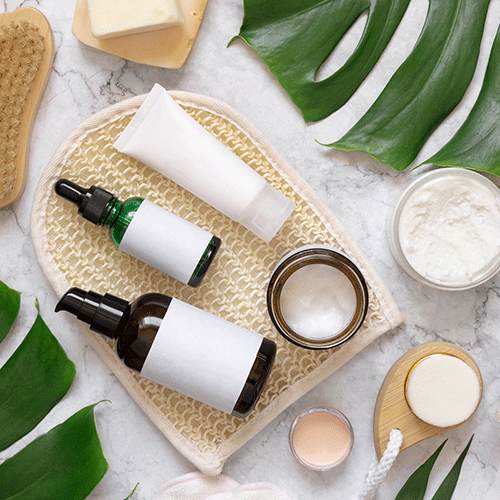
Globally, the beauty and cosmetic industry made more than 500 billion dollars in 2021 and has an annual growth of 4.75%. Even with this, there is an increasing demand for more sustainable and natural cosmetic products from consumers. While the industry has made positive steps forward by banning plastic microbeads, the sector still faces many sustainability challenges.
The regulatory framework is established to make sustainable products the norm, boost circular business models and empower consumers for the green transition. It sets new requirements to make products more durable, reliable, reusable, upgradeable, and recycle, and energy and resource-efficient
Transparency and traceability of raw materials
Sourcing and securing raw materials is a major challenge for all manufacturers in the cosmetics and personal care industry. To prevent the economic consequences of these disruptions such as COVID-19, political conflict, and warehouse fires, many are looking to establish sources elsewhere and switch supply chains locally. However, new supply sources can complicate the development process of a cosmetic product.
Eurofins’ regulatory affairs experts and toxicology teams can provide you with personalised support during your cosmetics and personal care multi-sourcing process, including
- Validation of materials in accordance with your blacklist and the reference material
- Approval and evaluation of the new source
- Updating regulatory documents, including the Product Information File and material certificates
- Possible revision of the product safety assessment
Sustainable cosmetic packaging
Experts estimate the cosmetics industry produces over 100 billion packaging units per year. The volume of this packaging that is reused or recycled is relatively small, and many items contain single-use plastics, the majority of which end up as landfill waste.
The complexity of creating and selecting the right packaging is to guarantee that it is optimised for human and environmental health and global safety regulations, including the European Cosmetic Regulation (EU) No. 1223/2009. Eurofins has therefore put in place a 3-step strategy to evaluate the safety of packaging, coupled with testing under relevant conditions; focusing on
- reduction
- reuse
- recycling
Ecotoxicity and biodegradability
Cosmetics contain both natural (biobased) and synthetic chemistries that can contain potentially sensitive materials such as biocides and volatile organic compounds (VOCs) that are potentially harmful to both humans and marine life.
More than ever, therefore, consumers require full transparency about the potential environmental impacts of the cosmetics products they use. In response, companies increasingly look to prove their environmentally-friendly credentials including ecotoxicity and biodegradability. To meet both consumer and producer demand, Eurofins’ offers services to assess the environmental impact of cosmetic products from raw materials to finished products and packaging.
- Biobased content assessment, upcycled ingredients, biofermentation
- Chemical testing and compliance
- Ecotoxicity testing
- Traceability through Supply Chain Mapping
- Product Life Cycle Analysis
- Carbon footprint
- Biodegradability, disintegration and compostability of cosmetics and packaging
- Allergy assessment of cosmetics
- Vegan certification
- Sustainable refillable packaging
All services
Industries supported
 Sustainable Chemical manufacturing
Sustainable Chemical manufacturing Sustainable Construction
Sustainable Construction Sustainable Cosmetics and Personal Care
Sustainable Cosmetics and Personal Care Sustainable cotton
Sustainable cotton Sustainable detergents
Sustainable detergents Sustainable Electrical and Electronics
Sustainable Electrical and Electronics Sustainable Farming
Sustainable Farming Sustainable Food
Sustainable Food Sustainable Footwear
Sustainable Footwear Sustainable Furniture
Sustainable Furniture Sustainable hygiene, paper and pulp
Sustainable hygiene, paper and pulp Sustainable Leather
Sustainable Leather Sustainable Paper and Packaging
Sustainable Paper and Packaging Sustainable Textiles
Sustainable Textiles Sustainable Toys
Sustainable Toys


